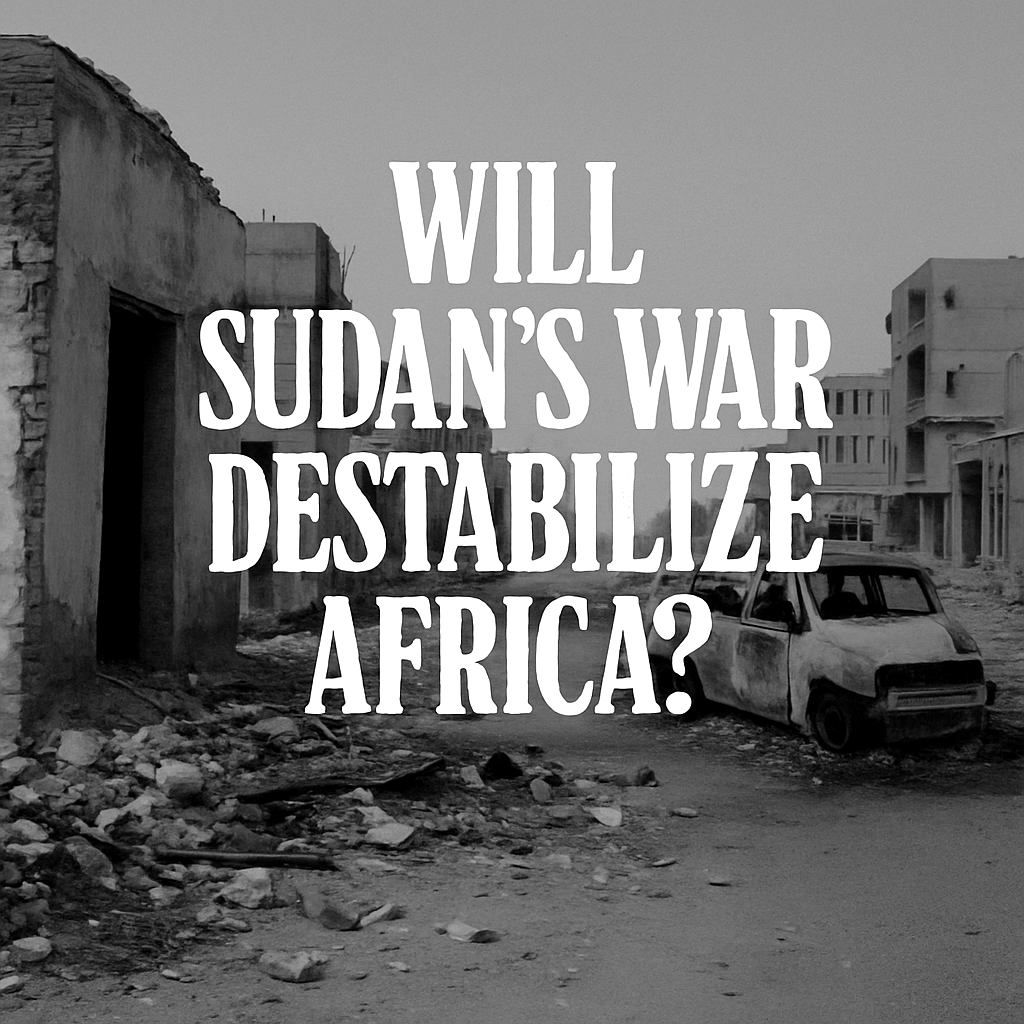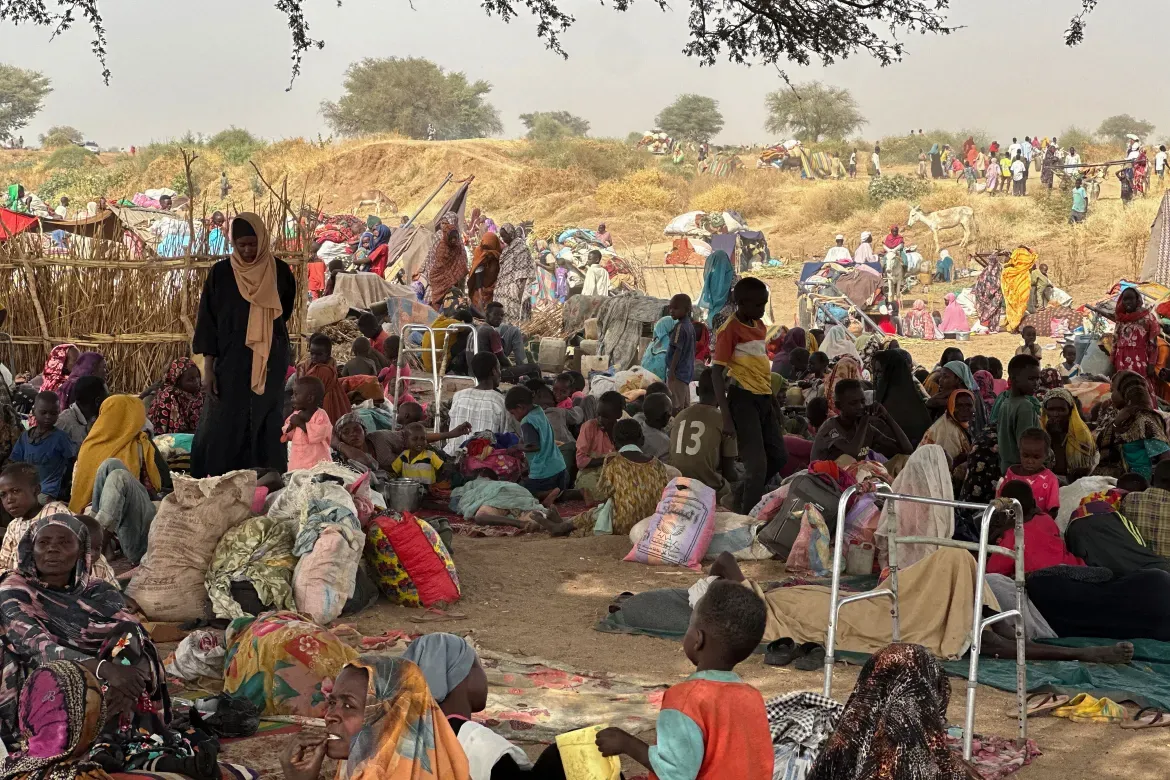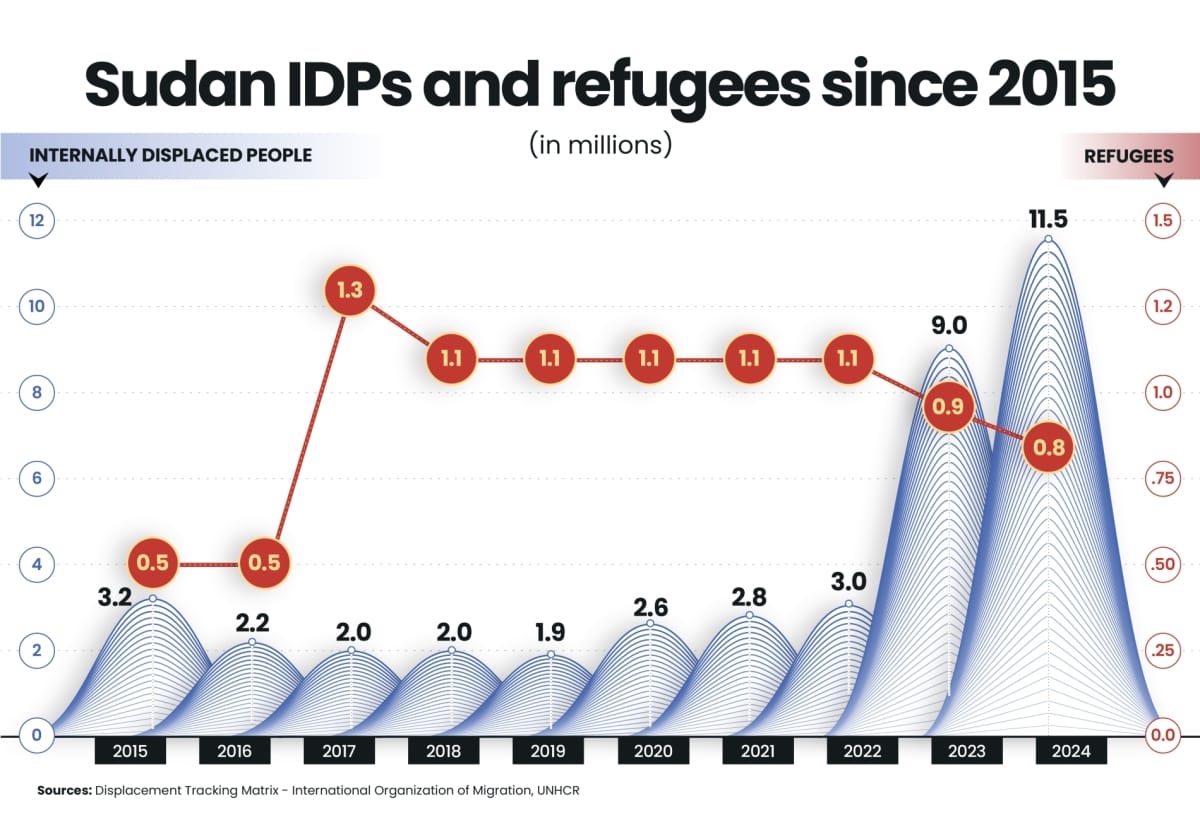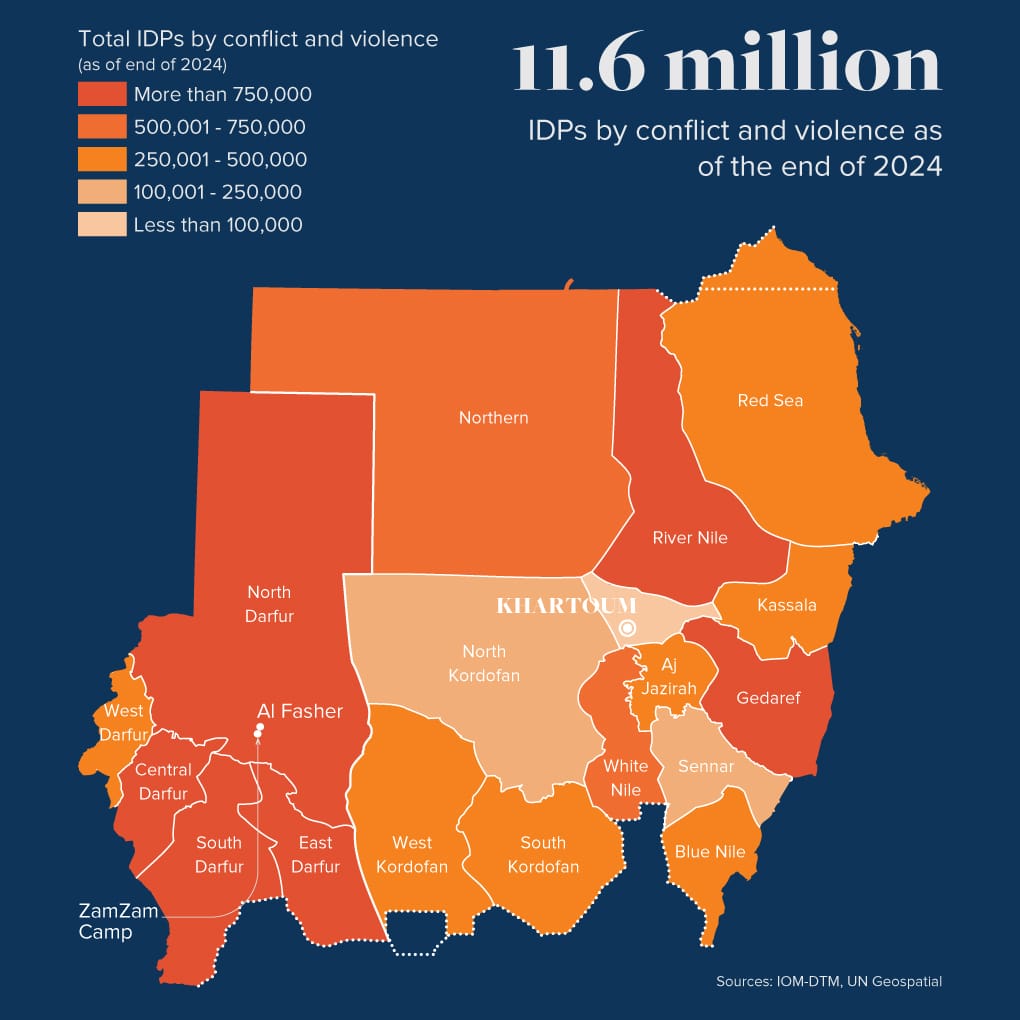Sudan’s Vanishing Peace: Why Diplomacy Keeps Failing in Africa’s Deadliest War
This investigative report details the repeated collapse of ceasefires, the devastating role of foreign actors and illicit gold, and the horrifying silence surrounding a crisis of starvation and sexual violence that echoes the Darfur genocide.

Written by Lavanya, Intern, Allegedly The News
KHARTOUM, August 5, 2025
The silence is more lethal than the artillery. For nearly two and a half years, a brutal civil war has raged in Sudan, plunging the nation into a humanitarian crisis of historic proportions. As of mid-2025, over 30 million people, more than half the population, are in desperate need of aid, and 12 million have been forcibly displaced, marking the world’s largest and fastest-growing displacement crisis. Yet, in the face of this unfolding catastrophe, diplomacy has become a revolving door for broken promises, and the world has largely looked away.
This investigative report dissects the anatomy of this diplomatic failure, exposing the roots of the conflict, the economic incentives for war, and the devastating, largely untold human toll of a crisis that the global community seems intent on ignoring.
A Timeline of Broken Promises: Why Ceasefires Don’t Hold
Since the war’s outbreak in April 2023, the international community has overseen a parade of ceasefires and peace talks, none of which have held. Each collapsed truce has been a cruel mirage, offering a fleeting moment of hope before plunging civilians back into the maelstrom of violence.
- May 2023, The Jeddah Declaration: The first major diplomatic push, brokered by the United States and Saudi Arabia, resulted in a "Declaration of Principles" and a supposed seven-day ceasefire. However, both sides violated it almost immediately, a clear signal that they were not committed to a peaceful resolution. The talks were suspended indefinitely.
- Late 2023 and Early 2024, Inter-regional Initiatives: Subsequent talks, led by regional bodies like the African Union and IGAD, also failed. The SAF, emboldened by its control of the official state apparatus, often refused to attend, while the RSF used the talks to legitimize its position as a warring party. This non-negotiable stance created an impossible diplomatic stalemate.
- 2025, A Parallel Governance Crisis: The failure of diplomacy reached a new low in 2025. Following the SAF’s success in retaking Khartoum and other key areas, the RSF on July 26, 2025, announced the formation of a parallel civilian administration, the "Sudan Founding Alliance." This move was widely condemned, with the African Union's Peace and Security Council warning that it "carries a huge risk of partitioning of the country." The establishment of two competing governments, each vying for legitimacy, has further complicated any prospect of a unified peace process.
The root of this repeated failure is clear: a profound lack of political will from the warring parties and the absence of a unified, internationally-backed enforcement mechanism. With no consequences for violating a truce, both the SAF and RSF have used "peace talks" as a cover to rearm and reposition, not as a genuine path to peace.

The Rise of a Leviathan: Tracing the Roots of the Conflict
To understand the current war, one must look back to the early 2000s and the formation of the Rapid Support Forces. The RSF, commanded by Mohamed Hamdan "Hemedti" Dagalo, emerged from the notorious Janjaweed militias used by former President Omar al-Bashir to crush the rebellion in Darfur. These militias were a brutal, government-backed force responsible for what the United Nations and the United States would later call a genocide.
After ousting Bashir in 2019, the RSF and the Sudanese Armed Forces (SAF) under General Abdel Fattah al-Burhan initially shared power in a transitional council. The war began in April 2023 when a power struggle over the integration of the RSF into the regular army boiled over. Hemedti, fearing his force would be dissolved and his power diminished, preemptively attacked key government and military sites. The war, therefore, is not a new conflict but an old one, a continuation of a deep-seated power struggle, fueled by the legacy of impunity in Darfur and the absence of a genuine democratic transition.
The World’s Largest Crisis That No One Is Talking About
In 2025, Sudan’s humanitarian crisis has surpassed all others in its scale and speed. As of July 2025, an estimated 12 million people had been forced to leave their homes, including 7.7 million internally displaced persons (IDPs), with over 4.1 million fleeing to neighboring countries like Egypt, Chad, and South Sudan. The International Organization for Migration (IOM) reports that attacks on civilians and aid workers in Darfur are at "shocking heights," putting millions on the brink of famine.
Yet, despite these staggering numbers, global media coverage remains minimal. The war is overshadowed by conflicts elsewhere, and a general "compassion fatigue" seems to have set in. Without sustained media attention, there is little public pressure on governments to act, and funding for humanitarian aid remains critically low. The UN's 2025 Humanitarian Response Plan, which sought to raise $4.16 billion, was only 23.2% funded as of early August 2025. This funding shortfall is a direct driver of death and suffering, as aid groups are unable to reach those in need.
The Political Economy of War: Blood Gold and Foreign Weapons
The war is not just a military struggle; it's an economic one. Both the SAF and the RSF are financially motivated and supported by external actors who have turned the conflict into a proxy war. The RSF, for example, has built its power on the illicit control of gold mines in Darfur, allegedly smuggling the precious metal to wealthy Gulf states. The United Arab Emirates has been accused by human rights groups of providing weapons and support to the RSF, while the SAF has reportedly received support from countries like Iran and Russia.
Foreign involvement has transformed the conflict from a domestic power struggle into a complex geopolitical game. Competing interests from Saudi Arabia, Egypt, and others have created a network of alliances and rivalries that fuel the violence. This external interference undermines any chance of a neutral, lasting settlement by providing both sides with the resources they need to continue fighting indefinitely.

A Terrifying Echo: The Darfur Atrocities Are Repeating Themselves
In Darfur, history is not just rhyming; it is repeating itself with horrifying precision. The RSF, born of the same Janjaweed militias, is once again targeting non-Arab communities. In besieged cities like El Fasher, where a humanitarian crisis has reached a catastrophic level, civilians have been assaulted, killed, and displaced. The International Criminal Court’s Deputy Prosecutor has warned that "crimes against humanity" are being committed, and the US government, in early 2025, determined that the RSF and its allies have committed genocide.
This is not a new conflict, but a new chapter of an old one. The same actors, under a different name, are employing the same genocidal tactics. The world's failure to learn from the past is now being measured in human lives, a chilling reminder of what happens when the international community chooses to watch rather than act.
The International Silence Surrounding Gender-Based Atrocities
One of the most horrific and underreported aspects of the war is the staggering rate of sexual violence. Reports from humanitarian organizations in 2025 have documented a sharp rise in gender-based atrocities, including rape, gang rape, abduction, and sexual slavery, particularly in RSF-controlled displacement camps. An April 2025 report from Insecurity Insight noted a total of 42 publicly reported incidents of conflict-related sexual violence in just a two-month period, with nearly half attributed to the RSF.
This institutional silence is a devastating betrayal of the victims. While there have been reports and official condemnations, there has been no sustained, high-level diplomatic pressure or action to hold perpetrators accountable. This inaction echoes the international community’s initial slow and inadequate response to similar crimes committed in Darfur two decades ago, revealing a deeply troubling pattern of neglecting gender-based violence in conflict zones when media attention and political will are absent.

What Happens Next? A Call to Action and New Questions
The path forward for Sudan is precarious, but there are clear demands for a stronger international response. The current inaction is not a viable strategy. A more robust approach would include:
- Unified Diplomacy: Creating a single, unified international mediation platform, involving regional and global powers, to prevent competing diplomatic efforts.
- Targeted Sanctions: Implementing more stringent sanctions on individuals and entities on both sides of the conflict, particularly those involved in resource exploitation and illicit trades, like gold.
- Humanitarian Intervention: Ensuring immediate, unfettered humanitarian access to all conflict zones, with potential for airdrops and protective measures for aid convoys. The UN must be given the authority and resources to deliver aid without the consent of warring parties.
- Accountability: Strengthening the mandate of the International Criminal Court (ICC) and providing full support for investigations into war crimes and gender-based atrocities, with a clear commitment from all nations to enforce arrest warrants.
The war in Sudan risks not only the complete collapse of the nation but also a dangerous spillover into neighboring countries, threatening the stability of the entire East African and Sahelian regions. The massive influx of refugees is already straining the resources of nations like Chad and South Sudan, which are grappling with their own internal crises.
Digital advocacy groups and Sudanese activists are working tirelessly to fill the void of mainstream media, using social media to document atrocities and appeal for aid. They are a lifeline of information, but they cannot replace the sustained, coordinated pressure that only a united global front can provide.
The Crisis of Impunity
The vanishing peace in Sudan is a direct result of a global crisis of impunity. The repeated failure of diplomacy is not a procedural flaw but a symptom of a deeper problem: the international community’s historical unwillingness to hold powerful actors, both domestic and foreign, accountable for their actions. The RSF, a militia born of genocide, was never truly dismantled; it was legitimized. Foreign powers, driven by economic interests, have been allowed to fund the war with impunity. This theory posits that until the cost of war becomes greater than the reward, both for the warring parties and their international backers, diplomacy will remain a hollow gesture, and the people of Sudan will continue to pay the price.
Things to ponder
How can the international community incentivize the SAF and RSF to pursue a genuine negotiated settlement when both sides believe they can achieve a military victory and are being supported by foreign actors? Given the fragmented nature of international media, what responsibility do global news organizations have to maintain sustained coverage of crises like Sudan's, even when they are overshadowed by other conflicts?
Sources
- ReliefWeb
- International Organization for Migration (IOM)
- World Health Organization (WHO)
- Amani Africa
- CGIAR
- Insecurity Insight
- Security Council Report
- Migration Policy Institute
- UNHCR
- UN Geospatial
- Aljazeera
- UN News
- UN IOM-DTM, UN Geospatial via IOM Reports
- Wikipedia: Sudanese civil war (2023–present)




